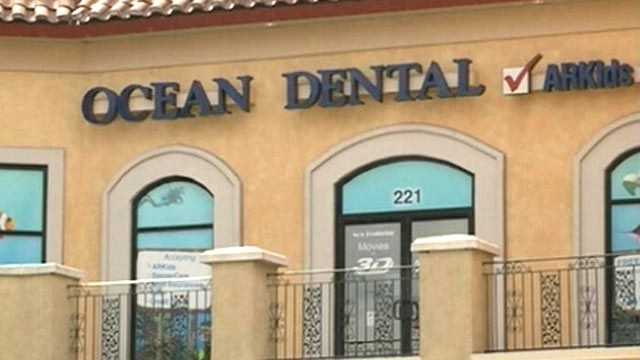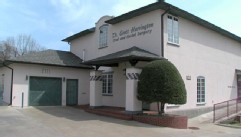The Arkansas health department's announcement that a dentist who died more than a year ago may have exposed his patients to "infectious material" has thrust his history of drug abuse into the national spotlight, but the state dentistry board says it's not clear the dentist did anything wrong.
The Arkansas Department of Health announced this week that it would contact the 100 patients Dr. William Jarrod Stewart treated with the intravenous painkiller meperidine -- known as Demoral -- between Nov. 20, 2011 and Feb. 20, 2012. Stewart committed suicide on Feb. 29, 2012 at age 40 shortly after he lost his job, according to his father.
"Anybody around him would tell you he was a great dentist," Stewart's father, Larry Stewart, told ABCNews.com. "He just had a problem with drugs. That's mainly what caused all this."
RELATED: Oklahoma Dentist Could Face Criminal Charges
Stewart had issues with substance abuse in the 1990s when he was living and practicing dentistry in Louisiana, and he eventually surrendered his dentistry license there, said Arkansas Board of Dentistry attorney Bill Trice. After completing a rehabilitation program in 2000, he asked for a dentistry license in Arkansas. It was granted on the condition that he complete a five-year program with daily drug testing.
Stewart was drug-free for the full five years, but he relapsed and had to complete the five-year program again, Trice said. In 2010, Stewart completed the program a second time. For the next two years, the dentistry board didn't hear about any problems.
Ocean Dental, which owned several clinics where Stewart worked, asked Stewart to take a drug test on Monday, Feb. 20, 2012 after he appeared to be impaired during Sunday communications with Ocean Dental employees. He was told he would be fired immediately if he refused, but he refused anyway, according to a statement from Ocean Dental.
The dental board did not know why Stewart was fired, Trice said.
Then, Stewart committed suicide by overdosing on drugs on Feb. 29, 2012, according to Pulaski County Coroner Gerone Hobbs.
Six months later, in August, the Drug Enforcement Agency got a complaint from a former employee of the dental clinic where Stewart worked, prompting the agency to visit the clinic, Trice said. Investigators found evidence that two vials were tampered with, but they didn't find evidence of any disease.
Trice, who has been a prosecutor on behalf of the dentistry board since the early 1980s, said he's not convinced Stewart contaminated any drugs.
"They've got all these isolated facts out there, but I'm not sure the dots connect," Trice said.
RELATED: Okla. Dentist's Former Assistant Gave Anesthesia, Didn't Know It Was Illegal
DEA spokesman William Bryant said two separate sources called to say the single doses of these drugs were compromised. The second call came in as late as last week, he said.
Stewart's former patients were advised to seek tests for blood borne diseases like HIV and hepatitis b, but Larry Stewart said his son was tested and the results were negative. Given the length of time between the death and the announcement, he said he felt his son's name was "truly smeared."
"We feel like we've been violated," Larry Stewart said. "These things would have already come to light if there had been any diseases, yet they took it upon themselves to put it out to the public nationwide 13 months after the fact."
The Arkansas Department of Health was notified eight days ago, but it needed the time to determine how best to inform patients and convey the low level of risk, according to state epidemiologist Dr. Dirk Haselow.
"We definitely believe that people needed to be notified," Haselow said. "No one else in those facilities had sedation privileges, therefore no one else had access to those medications."
Up to 12 percent of all physicians in the United States develop a substance abuse disorder, according to a 2008 study published in the British Medical Journal, BMJ.
The public health scare comes less than two weeks after an Oklahoma dentist was accused of exposing 7,000 of his patients to HIV, hepatitis B and hepatitis C.





No comments:
Post a Comment